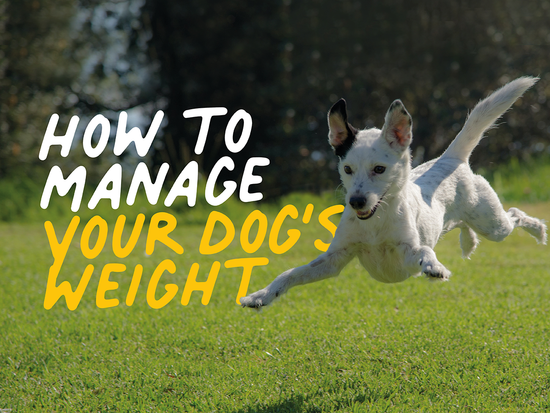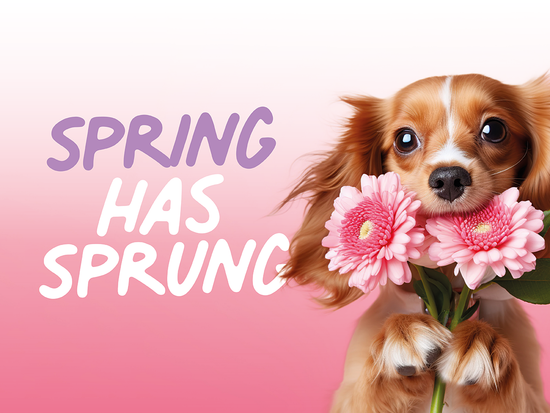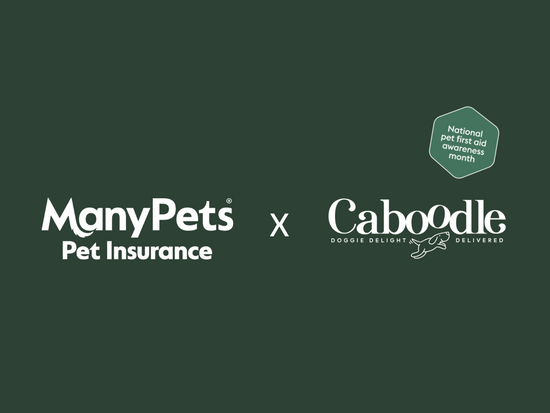Is My Dog Overweight?
Just like us, it's easy for dogs to put on weight and just like us, it's not so easy to lose. It's sometimes hard to know the best dog food to choose and also to know how much your dog is eating every day unless you measure it out precisely and treats are especially hard to keep track of. We reward our dogs for coming back in the park, for looking cute in the coffee shop or looking sad or bored. And what pet parent hasn’t on occasion offered up some tasty morsels from their plate to their doe-eyed dog looking up expectantly?
In a recent report by the PDSA we were shocked to learn that 78% of UK vets had seen an increase in pet obesity in the past 2 years, with 86% of dog parents unaware their dog was overweight. This has now become the No.1 welfare concern of vets in this country. For just like humans if your dog is overweight it will dramatically impact its life expectancy.
Obesity in dogs leads to life-long and life-threatening illnesses such as cardiovascular and respiratory problems, diabetes, arthritis and cancer. Not only that - daily activities are also more challenging for overweight dogs who tend to be less active, more lethargic and prone to heat stroke in hot weather.
However, the good news is that dog obesity is entirely preventable and by giving your dog the correct amount of dog food for his age, size, condition and weight you can prolong their life significantly and avoid the pain and misery of obesity-related health conditions.
So how can you tell if your dog is overweight?
Feel - Run your hands up and down the back of their spine feeling the ribcage. If you can feel your dog’s ribs that’s a good sign. If you can’t, then your dog is overweight.
Look - Stand behind and look down onto your dog’s body. A healthy dog will have a sign of a waist between their ribs and hips. Looking from a side angle the waist should also tuck up, if the belly hangs lower than the ribs he is overweight.
Weigh - Many people only weigh their dogs once a year at the annual check with their vet. Try to get into the habit of regular weigh-ins at home, simply weigh yourself, then pick up your dog back and weigh again subtracting your weight then compare with breed standards.
If you think your dog is overweight, consult your vet to implement a weight reduction programme which can be done over a period of time. Once your dog has reached it's ideal weight, then try to be aware of the amount he is being fed and focus on games and exercise as a reward rather than fattening treats.
Lack of exercise is also a major contributing factor to obesity in dogs. We recommend a couple of walks a day which will keep your four legged friend happy and bushy tailed. Off-lead walks are ideal where they can maintain a healthy level of activity. Playing games like fetch and hide the toy at home is also rewarding.
However, the best way possible to keep your dog on track is diet. That’s why we at Caboodle have devised a hassle-free feeding system. It contains daily trays with everything your dog needs for each day measured out for their size and breed. This removes the guesswork and gives you more time for healthy walks, playing games and bonding time.
The trays contain already measured and perfectly combined wet and dry food with low calorie treats and chews also included. There’s a different dish for every day of the week so your dog will never get bored. And better still, our subscription boxes will automatically arrive to you every month so you will never have to deal with those half opened bags of dog food and half opened tins of dog food cluttering up your fridge and kitchen cupboards again!
Let’s work together to fight obesity in dogs, click Get Started today!




